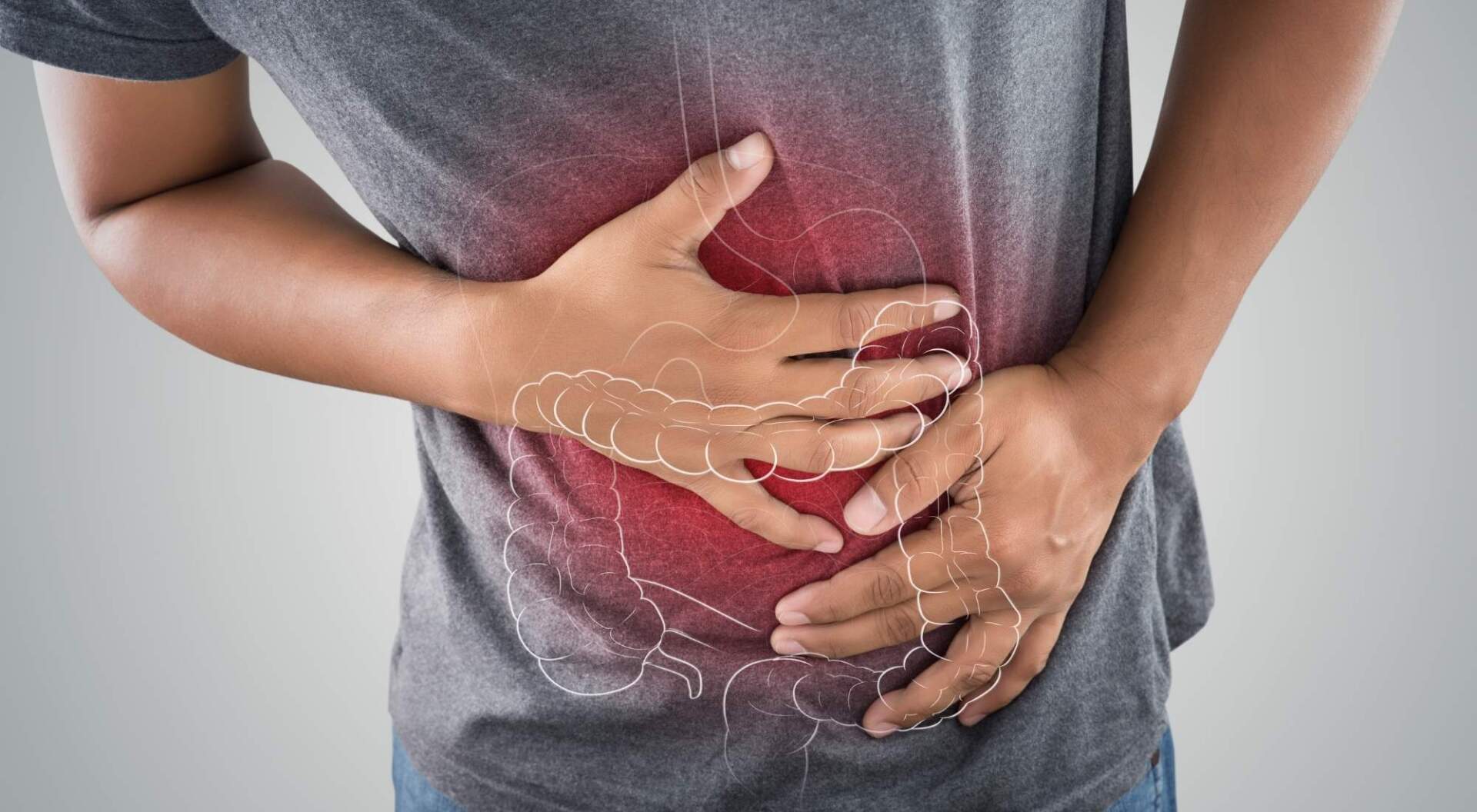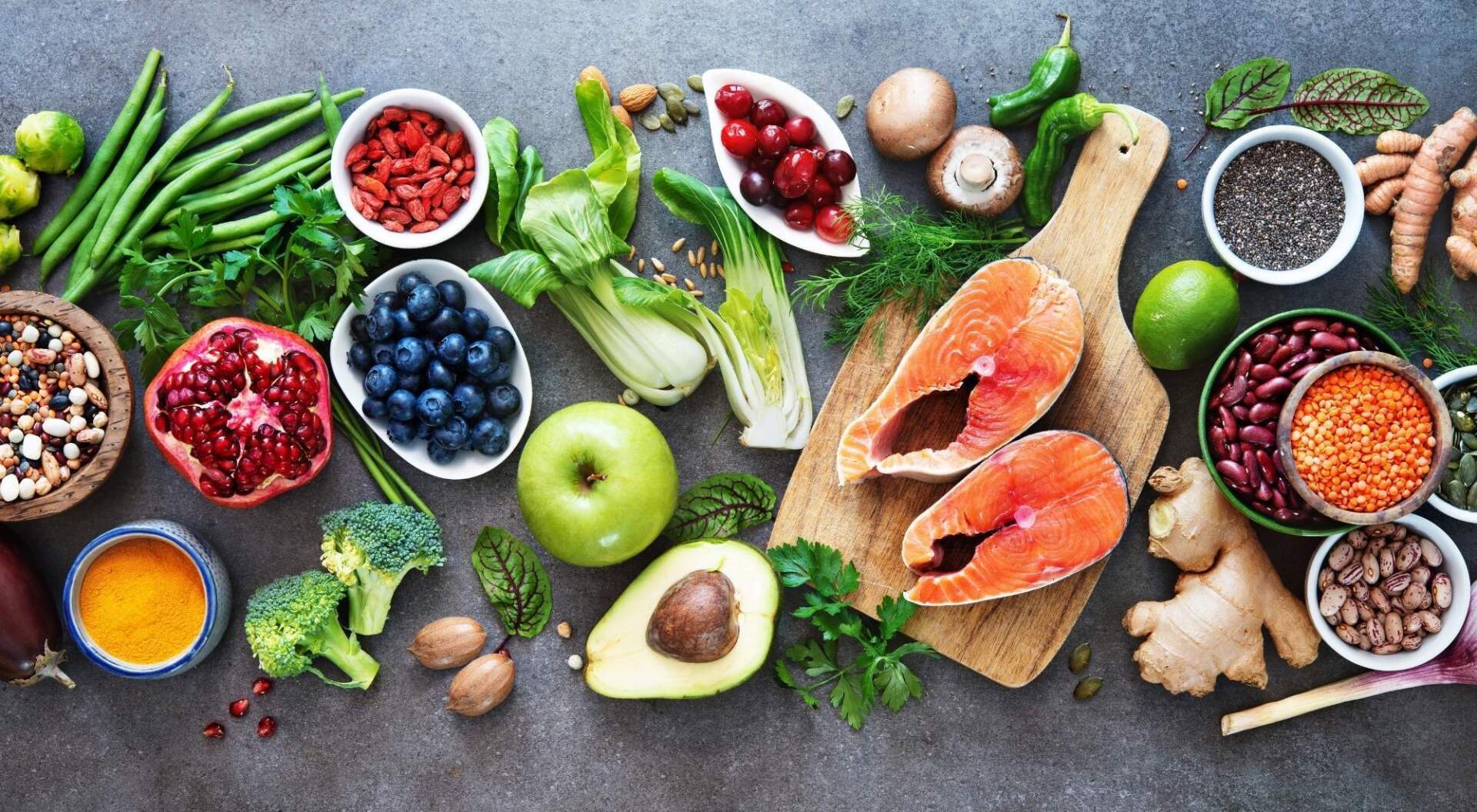Can Food Allergies Cause Constipation? What the Research Says and 7 Foods to Avoid
"The content below is not intended to be a substitute for professional medical advice, diagnosis, or treatment. Always seek the advice of your physician or other qualified health provider with any questions you may have regarding a medical condition."
Have you noticed that lately, each time you consume dairy, you have a hard time using the bathroom?
Your stomach aches, you feel nauseous, and you just can’t seem to go.
Now you’re wondering, “Can food allergies make you constipated?”
Don’t fret, we have good news. There’s simple testing and natural ways to heal your food-related digestive health issues.
Here, we answer questions like:
- What food intolerances can cause constipation?
- What foods should you avoid if you’re having digestive health issues?
- And more
Table of Contents
Can Food Allergies Affect Your Digestive System?
If you’ve ever lived with a food allergy, you might be aware that they can have unwanted effects on your digestive health, including:
- Diarrhea
- Nausea
- Abdominal pain
- Vomiting; and
- Painful swallowing
You may have only experienced one of these negative symptoms, or they could have hit you in a group, causing severe pain and discomfort.
Unfortunately, food allergies are becoming more and more common.
It is estimated that 6-8% of children and 3-4% of adults experience a food allergy in their lifetime.
For children, a milk protein allergy seems to be most common, and luckily, is often outgrown.
Adults typically experience food allergies to:
- Shellfish
- Peanuts
- Tree nuts
- Fish; and
- Eggs
What Are Some Signs That Food Allergies Are Upsetting Your Digestive System?
If you find that each time you consume eggs (or any other food), you soon begin to experience …
- Nausea
- Vomiting
- Diarrhea
- Constipation
- Trouble swallowing; or
- Abdominal discomfort
... you may have a food allergy.
These symptoms can present one at a time, or you may be one of the unlucky ones who is hit with multiple digestive symptoms.
If you think you might be experiencing a food allergy based on your digestive symptoms after consuming a specific food, you’re probably in search of some answers.
Dr. Sergi at
HealthierU is happy to provide a complimentary consultation for you to learn about our digestive health services and how Nutrition Response Testing can help.
Can Food Allergies Make You Constipated? Let’s Look at the Research
Constipation can be a negative side effect of some food allergies, according to research. Unfortunately, this is common among children.
We know that cow’s milk is one of the most common food allergies in young kids that can cause some unfavorable symptoms.
Functional constipation (FC) and irritable bowel syndrome (IBS) are the most common forms of functional gastrointestinal disorders (FGIDs) found in children.
One study suggests that food allergies could play a role in these functional bowel symptoms. It might be recommended to try an oral food challenge or an elimination diet to identify which foods cause these reactions.
Another
study notes that there is still more to learn regarding food allergies and constipation but acknowledges that
functional constipation can be a symptom to patients with food sensitivities.
How Do Food Allergies Cause Constipation?
Now you might be curious, “How do food allergies cause constipation?”
Research has shown that constipation and food allergies (or intolerances) can be linked to proctitis. When your body identifies a food as harmful or unpleasant to the system, the lining of the rectum can become inflamed, making it difficult to use the bathroom.
You might experience:
- Rectal pain
- Diarrhea
- Bleeding or discharge; or
- A continuous feeling of having to use the bathroom
Food Allergies That Cause Constipation: 7 Foods to Avoid
While food sensitivities and food allergies differ, they both can cause unwelcomed symptoms — constipation included.
Are you experiencing uncomfortable constipation and wanting to try to get to the root of the problem?
Here are 7 foods you should begin to eliminate or avoid to see if your constipation symptoms improve.
#1: Dairy
A dairy allergy is one of the most common food allergies, especially in young children.
Typically, symptoms of a dairy allergy appear as:
- Wheezing
- Swelling of the mouth and/or lips
- Rash
- Anaphylaxis
- Eczema or skin complaints
- Joint pain
- Respiratory issues
- Weight loss; or
- Fatigue
What about constipation?
A 2012
study has shown that a dairy allergy in children, specifically cow’s milk, can present as chronic constipation.
#2: Caffeine
Caffeine is found in many things we consume daily, but the most common caffeine food allergy reactions come from:
- Coffee
- Tea; or
- Chocolate
Although a food allergy to caffeine is rare, people who experience this food allergy metabolize caffeine slowly, allowing the immune system to perceive it as a harmful invader.
What are the symptoms?
- Itchiness or swelling of the mouth, tongue, or lips
- Hives or skin irritation
- Anaphylaxis; and
- Wheezing or coughing
An intolerance to caffeine is more common and may appear differently than an allergy. You might experience:
- An increased heartbeat
- Anxiety
- Jitteriness
- Headaches
- Insomnia; or
- Digestive issues and constipation
#3: Gluten
Gluten is a protein found in many popular grains that we regularly consume, and is found in foods like:
- Pizza
- Pasta
- Bread; and
- Cereal
Although these foods might taste delicious, the gluten in them provides no essential nutrients. In fact, gluten intolerance can cause nasty symptoms, like:
- Inflammation
- Diarrhea
- Abdominal pain
- Poor appetite
- Rash
- Constipation
- Bloating; and
- Weight loss
Most often, people who suffer from …
- Celiac disease
- IBS; or
- Crohn’s disease
… avoid gluten, but much of the population chooses to partake in a gluten-free diet as well.
#4: Alcohol
Similar to caffeine, reactions to alcohol are often food intolerances.
The symptoms are usually caused by the chemicals, grains, or preservatives used in the alcohol and can present as:
- Facial redness
- Itchy skin
- Redness of skin
- Worsening of asthma
- Low blood pressure
- Digestive issues; and
- Runny or stuffy nose
#5: Fried Foods
Fried foods are common in the United States, especially in the form of fast food.
If you’re unable to properly digest fried foods, you might have a food intolerance and could experience symptoms like:
- Stomach pains and cramps
- Nausea
- Constipation
- Heartburn
- Diarrhea
- Headaches; or
- Bloating
A more intense allergy to fried foods could present as:
- Hives
- Itchiness and skin swelling
- Vomiting; or
- Diarrhea
#6 High FODMAP Foods
FODMAP — fermentable oligosaccharides, disaccharides, monosaccharides, and polyols — are sugars that the small intestines are unable to properly absorb.
Some foods high in FODMAP include:
- Wheat-based products
- Dairy products
- Some vegetables (artichokes, asparagus, onions, and garlic)
- Some fruits (apples, apricots, cherries, figs, mangoes, nectarines, peaches, pears, plums, and watermelon)
You might be experiencing a reaction to FODMAP foods if you have digestive distress after consuming any of these food sources. Symptoms could include:
- Cramping
- Diarrhea
- Constipation
- Bloating; and
- Gas issues
#7: Red Meat
A food allergy to red meat is less common than a red meat food intolerance.
Why?
When red meat is cooked, it kills off many of the proteins that can trigger allergic reactions.
Histamine, the chemical driven by the proteins, dilates blood vessels causing symptoms like:
- Headache
- Rash
- Indigestion
- Stomach cramps
- Dizziness
- Diarrhea; and
- Vomiting
In more serious cases, anaphylactic shock can cause fainting or cardiac arrest.
If you do believe you’re experiencing a true food allergy to red meat, you’re likely reacting to a carbohydrate called “alpha-gal.” The symptoms may take hours to appear, but they can be serious.
You might notice:
- A drop in blood pressure
- Dizziness or fainting
- Swelling of throat, mouth, lips, or tongue
- Severe stomach pains
- Heartburn or indigestion
- Shortness of breath
- Cough; or
- Nausea and vomiting
Food Allergy vs. Food Intolerance: Is There a Difference?
Based on the reactions and symptoms of foods, certain foods can be categorized as an allergy or as an intolerance.
Food allergies seem to affect about 1% of adults and as many as 7% of children. However, children tend to grow out of food allergies as they age.
Food intolerances seem to be more common. Why so? Almost everyone has had a bad reaction to one type of food or another before.
So what is the difference between the two? How can you tell if you’re experiencing a food allergy or simply an intolerance?
A true food allergy is a response in the immune system. Your body becomes defensive against an ingredient in food, causing the antibodies to fight off the invasion.
The most common food allergies are:
- Fish
- Nuts
- Shellfish
- Milk
- Eggs; and
- Peanuts
A food intolerance is a negative response to food in the digestive system. Typically, whatever you eat upsets your stomach and causes some unwanted symptoms.
The most common food intolerance, lactose, affects about 10% of Americans.
What Food Intolerance Can Cause Constipation?
We know that food intolerance and constipation can go hand-in-hand when it comes to some foods.
What should you avoid eating to skip the bathroom issues? Here are some suggestions:
- Fried food
- Fast food
- Milk
- Dairy products
- Red meat
- Processed grains; and
- Gluten
Nutrition Testing at HealthierU Can Help You Get to the Bottom of Food Allergies and Constipation
Do digestive issues hit you like a ton of bricks shortly after consuming specific foods?
If so, you might be suffering from a food allergy. In fact, food sensitivities and constipation often go hand-in-hand.
Luckily, Nutrition Response Testing can help to diagnose your painful symptoms.
At HealthierU, Dr. Sergi tailors Nutrition Response Testing specifically for you and your body to assess what is and isn’t functioning properly. From here, she can better find what is the likely cause of your unwanted symptoms.
If needed, Dr. Sergi can design a program to help you make the best choices regarding your nutrition and food choices.
Any questions? Feel free to read
here to learn more, or contact HealthierU for a free consultation today.






